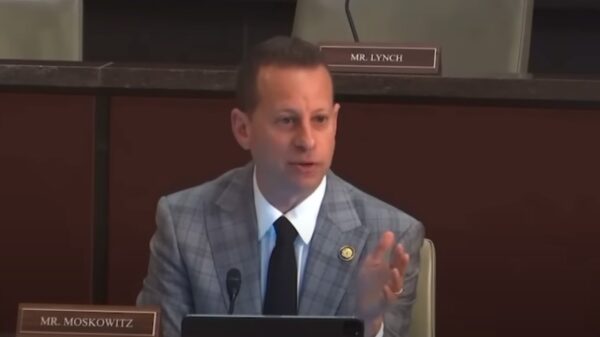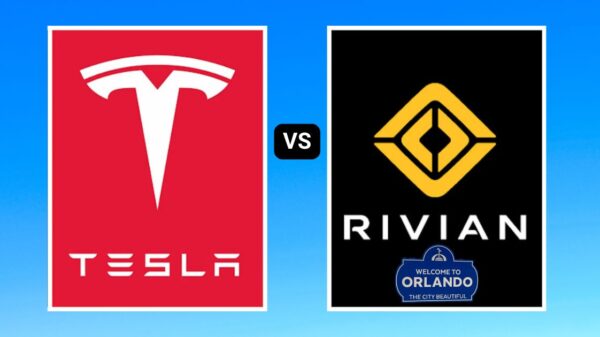She craved another chance and felt confident, while watching from home, that she could deliver in a way that was a hell of a lot better than the competition, harboring the sort of personal ambition and professional jealousy that develop as a matter of course in all who have fought for survival in prime time.
Talent and earned experience and the trust of a large audience. She has had all of it. The only thing she needed now was a television network. And so, she will borrow one.
She is set to return as a debate moderator next week to referee the fourth Republican presidential debate, this one in Tuscaloosa, Ala., and this time on NewsNation as part of a partnership with that network, Sirius XM, and the Free Beacon. It is a noteworthy milestone; she had a front-row seat eight years ago to the rise of populism. It is also a test of the new media; she bridled a similar kind of populism to continue her career.
And that’s why, for just a while, she worried. Independent journalists don’t often get to call marquee prize fights. But Megyn Kelly does.
“Malpractice, absolute journalistic malpractice!” That’s how Kelly describes the most explosive exchange from the Miami debate moderated by NBC News anchors Lester Holt and Kristen Welker. Nikki Haley had called Vivek Ramaswamy “scum” after the businessman took a shot at her adult daughter. Reliving the moment in an interview with RealClearPolitics, Kelly was incredulous: “And the moderator did not stop to say, ‘Wait, did you just call him scum? Mr. Ramaswamy. Do you care to respond?’”
“How did that not happen?” she asks before immediately offering an answer. “Because these moderators are too tied to their written questions. They’re not nimble. They are afraid to deviate from what their producers put in front of them. That isn’t good television!”
“There’s a reason why they call it broadcast journalism. It’s not just about journalism. It’s also about seizing the moment,” she explains. “You feel the moment, go with the moment.”
Kelly could have just as easily been describing her own career. A trial lawyer before entering journalism, Kelly jumped from the courtroom to cable news to network television over the last two decades.
And then the wilderness. Veteran journalists who go it alone hardly ever regain prominence. Some decamp to college campuses. Others write books. Most generally fade. Kelly, instead, seized the digital moment.
Three years ago, after an unsuccessful stint at NBC News, she launched “The Megyn Kelly Show,” a daily podcast that was later picked up on Sirius XM and that posts on YouTube, where her interviews regularly attract millions of viewers. Professional indifference, as much as independence, was an advertised feature of the new venture. The name of her production company: “Devil May Care Media.”
“Fourth or fifth acts in broadcast media are rare,” explains Brian Stelter, “and she is pulling it off.” Hardly a conservative fanboy, the veteran media reporter and former host of CNN’s Reliable Sources occasionally tunes in to the show during his commute, programming he described as “a hard-right, anti-woke rage fest.” But Stelter admits the Kelly renaissance “is a pretty rare success story.”
A seat at the desk of a presidential debate, though, the crown jewel of any career in political journalism? Even Kelly felt that would be out of reach “this time around.” Those gigs traditionally go to legacy media, and for good reason. Deep pockets, not to mention a wealth of experience, are needed to pull off a prize fight in prime time. All the same, Kelly says she “wound up with three different offers to co-moderate a debate.” But even with NewsNation handling all the technical logistics, would the ordeal be worth the fuss?
Former President Donald Trump has walked away from the stage, leaving his primary challengers to cannibalize each other as they trail by more than 45 points. “Does it matter at all?” she asked herself when deciding whether to moderate an undercard debate without the biggest name in politics. Sequels often fall flat, and her first debate had catapulted her to the journalism equivalent of superstardom.
It has now been eight years since Trump and Kelly, then of Fox News, clashed at the first Republican presidential debate. A stampede of magazine writers followed.
“Blowhards, Beware,” declared Vanity Fair in 2016, “Megyn Kelly Will Slay You Now.” And later Vogue dubbed her “Megyn Unbound” as she prepared to decamp Fox for NBC the next year, speculating that, once split from the conservative news juggernaut, she could finally be “a force for good.” Eventually, the names of the magazines that profiled her said as much about her career as the interviews: Variety, then Success, and finally More.
The quotes changed. The formula for each glossy cover story stayed the same. An elegant photo shoot, a couple thousand words complete with anecdotes about unscripted off-air moments, deviations on one common theme. One gushing headline summed up the shared sentiment: “Megyn Kelly Always Wins.”
She chuckles at that past coverage, and then the new queen of independent journalism returns to a no-brainer for anyone else with a byline. “In the end, I concluded, yes,” Kelly says of her reason for reprising her role as debate moderator, noting that “Trump is vulnerable in some unique ways” – from the frontrunner’s legal jeopardy to, “with all due respect,” the septuagenarian’s health. Between the Thanksgiving holiday and debate prep sessions, she insists “there are all sorts of reasons” for the GOP to consider “at least the next best option.” One of the candidates not named Trump “could pull an inside straight,” she muses. “It’s not likely,” Kelly concludes, “but who am I to rule it out?”
Haley, Ramaswamy, and Florida Gov. Ron DeSantis have qualified for that contest. None would likely appreciate her analysis of their chances. All of them know her already, however, and there is a level of comfort with Kelly inside party headquarters and among the grassroots. She may not be a dyed-in-the-wool conservative. She can at least speak their language.
“This does get to an interesting tension point about the debates,” Stelter mused. “Who should be asking the questions: Should it be Hugh Hewitt and Megyn Kelly, or Lester Holt and Bret Baier?” In his estimation, since going independent, the woman once crowned “the First Lady of Fox,” someone who cultivated a brand as “unpredictable,” has become reliably “more Rush Limbaugh than Brit Hume.”
It was Hume who first spotted Kelly and passed her demo tape along to Fox News brass, who eagerly recruited her to be a reporter. The rest is history, including a cautionary tale about cultivating talent. According to talk show host Erick Erickson, NBC drafted Kelly without an adequate plan to leverage her conservative celebrity. “They could have built a credible brand around Megyn,” he says, “but chose not to because she did not have enough of a left-wing orthodoxy.”
Erickson, like many others on the right, was quick to celebrate her return to the moderator role. “She can speak the language of the people from whom she came,” he explains, “even though she’s been elevated into this New York world of the media.”
Conservatives have long loved to hate the media, and moderators are no exception. Ramaswamy delighted the right with his modest proposal at the last debate that Joe Rogan, Elon Musk, and Tucker Carlson should be calling the contest. Kelly arguably has more mainstream appeal, less baggage, and better hair than all of them. And according to Erickson, a unique kind of credibility. “You don’t have to be a card-carrying member of the vast right-wing conspiracy to be taken seriously by conservatives,” he insisted. “You just have to be willing to treat them as humans with valid opinions.”
Kelly won’t sign any party membership card. “I’m a registered independent,” she says to almost preempt her admission in the next breath that “my sensibilities are center-right.” And so, when she takes her seat behind the desk in Alabama and looks out over the field of candidates, she won’t bother with a view from nowhere. On the eve of that contest, Kelly advertises “complete fluency” in the ideological concerns of conservatives. And then she offers up a professional disclaimer directed at the politicians she will square up with: “I’m never going to share a jersey with these people.”
“Am I willing to vote for a Democrat over a Republican at the presidential level these days? I’ll be honest, probably not. I have voted for plenty of Democrats in the past, but the world is so insane right now, and I’ve become almost a single-issue voter on what we’re doing to children in the trans lane,” she admits.
“But my point is even though I’m probably rooting for these guys over a Democrat, you won’t be able to tell that on debate night, and that’s all you can ask of a good moderator. They don’t have to have no politics. They don’t have to have no ideology. They have to be able to check it. They go out there such that both sides are satisfied that this person was tough but fair,” she continues.
Each of the candidates who will walk on stage next week has sat for in-depth interviews with her already, and even Trump made peace with her. Of course, it was only temporary. That segment included a lengthy cross-examination about his handling of classified documents, and days after it aired, hostilities resumed. “She was pretty nasty,” the former president complained to an Iowa crowd, “didn’t you think?” Kelly could care less.
She already got the interview. Now she’s about to get her debate, a contest she playfully likens to “a dinner party” where her role is that of the “bad host” who chooses chaos. “Instead of introducing fun topics on which guests might agree, you’re introducing the thorny ones,” Kelly says, laying out in broad strokes her plans for the evening. Should any of the candidates arrive low energy, she warns, well, “Maybe you take out the cattle prod.”
She plans to invite arguments and doesn’t expect “a hug” from anyone on stage afterward. “As soon as you declare yourself a presidential candidate, we’re not friends,” Kelly explains. The biggest bully in politics helped solidify that fact in her mind: “The nature of the relationship becomes adversarial. And as much as Trump came after me and made my life unpleasant after the 2015 debate, he wasn’t wrong.”
“I threw a punch at him that was considerable, and he threw many, many punches back. You could argue it was excessive. I certainly think it was. But my point is simply that part of it is accepting your role as someone who these guys are not going to like that much. If you’re doing it right, they shouldn’t,” she says, recalling her first big brush with the populist who went on to the presidency.
She talks in calculated, almost cold-blooded, terms but her inviting tone never loses its warmth. Such is the duality of Megyn Kelly: She is as disarming and kind as any suburban mom anywhere, and yet she has a plan to end the career of any unprepared politician she meets.
Scott Walker has tangled with Kelly before, and the former Wisconsin governor, who now serves as president of the Young America’s Foundation, has blunt advice for any 2024 candidates who might be tempted to underestimate the blonde brawler: Don’t.
“Just because she articulates conservative views doesn’t mean any of the candidates will get a pass from her,” Walker cautions. “They’d better be bringing their A-game to the debate stage.”
While her confrontation of Trump eight years ago dominates the memory of that contest, her questions to the rest of the field were no less aggressive. For instance, she didn’t lob a softball and invite Walker to explain why he opposed abortion.
and inside. “Would you really let a mother die rather than have an abortion?” Kelly asked. The governor kept his balance, defended his position, and answered that his pro-life position was “in line with everyday America.”
Others weren’t so lucky that night, as Kelly weaved right as quickly as she bobbed left. One moment, she asked former Ohio Gov. John Kasich, who had leaned on Scripture to justify his expansion of Medicaid, why conservative voters, “who generally want to shrink government” should “believe you won’t use your Saint Peter analogy to expand all government?” The next, she hit him with this question: “If you had a son or daughter who was gay or lesbian, how would you explain to them your opposition to same-sex marriage?”
The left-right routine was enough to win Kelly praise from all corners. Greg Abbott, the Republican governor of Texas, declared Kelly “the toughest person on the debate stage,” while Chelsea Clinton, the daughter of the eventual Democratic nominee the next year, said the moderators had raised “the quality of the debate.”
Campaigns are rewatching that debate and pulling clips from her show to prepare. “They should review my show,” she laughs. “It’s full of interesting content. They won’t find clues in there, though.” Kelly stubbornly refuses to talk outside of school. She says only that she and her co-moderators, Elizabeth Vargas of NewsNation and Eliana Johnson of the Washington Free Beacon, will be “unsparing.” The trio has binders full of “A+ level questions” designed to shove candidates off their talking points and into real moments of conflict.
“If the three of us could shrink into obscurity that night, it would be a total win. If it’s just all about the three of them, or four of them, and not at all about the three of us, that would be great,” Kelly says.
The four of them? “I know Trump loves Alabama. I do know this,” she says of a perhaps hoped-for surprise appearance. “He loves Alabama. So, there’s some possibility he’d decide to show up.” Should that happen, Kelly says the trio of moderators will be prepared. They’ve studied the candidates and the current moment.
“This Republican Party is a far more dynamic, interesting, and complex one than what we had even six to eight years ago,” she reports, before suggesting “that’s probably actually good for the country” and then declaring, “that’s definitely good for a debate.”
Take foreign policy, for instance, the foundation of the previous debate. Kelly cuts the party roughly into thirds for the sake of example. There is “the populist, Trump MAGA wing,” she says, and “then you still have the neoconservatives.” The remainder, in her quick estimation, are “the war-weary” who are skeptical of foreign intervention, “but who aren’t MAGA and certainly aren’t pro-Trump.”
Pick a different issue. Slice, dice, and repeat. “There are a bunch of factions right now in the Republican Party,” she says, in between debate prep sessions, “which for me, as somebody who has a show, a journalist, and as a debate moderator, spells opportunity.”
Familiarity will not lead to fondness, though. The only class Kelly seems to dislike more than politicians are members of the media. So much of her current rise is a reaction to their coverage, or perhaps an antidote. She complains that “the liberals who dominate the news” fail to account for their own biases, let alone check them in any meaningful way. “They’re cheerleaders,” Kelly says, “and that’s why independent media has exploded.”
“The populist rising that we’ve seen in our politics has tilted over to media,” she replies when asked how she fits into that phenomenon. “My own coverage, I wouldn’t describe it as populist, but it is definitely anti-elite and anti-institution because they’ve earned that disdain. And people have had it. They’ve come to understand that these institutions are not rooting for them.”
Next week may be the biggest opportunity yet for independent media when Megyn Kelly returns to live television. She predicts that some of her questions will be objectionable to one wing of the party and acceptable to another. “You have the chance to both please and displease a large constituency,” she says, “which is a win.”
“No one should be feeling super warm and fuzzy when the debate is over, like they just want to give the debate moderator a hug,” she adds. “They should be feeling like, ‘I loved this stuff. I hated that stuff. Overall, I found it very informative.’”
More than anything, though, Kelly stresses that she and her co-moderators will go with the moment. “We are going to make this entertaining,” she promises. “Trust me when I tell you, we know how. It’ll be fun to watch.”
This article was originally published by RealClearPolitics and made available via RealClearWire.




















